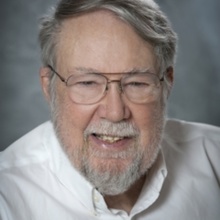By Charlotte Brookins
Benjamin Hunnicutt, professor of sport and recreation management at the College of Liberal Arts and Sciences and former chair of leisure studies, has been a part of the University of Iowa since 1975. Although he’s taught in many different departments on campus, his research has stayed mostly the same: the history and importance of reduced working hours.
“I’ve been researching this topic since my dissertation,” says Hunnicutt, who graduated from the University of North Carolina, Chapel Hill with a PhD in American History in 1975. “This project is what focused my scholarship over the years.”

Hunnicutt’s research examined the trend of work hours in America to grow shorter as wages increase, promoting a lifestyle that includes time to enjoy the products of labor. While studying at Chapel Hill, Hunnicutt came across an article confirming the fact that America has seen no significant increase in leisure time since the Great Depression, a marked change in the previously steady decline in work hours.
“I wanted to answer the question, as both a historian and an economist, why did this process end?” explains Hunnicutt. “What happened to the expectation that economic progress would make way for moral, humane, and community-oriented progress?”
Hunnicutt refers to the idea of leisure time and the four-day work week as the “forgotten American dream,” an idea of higher progress that dates back hundreds of years ago.
This concept has been a subject of fascination not only for Hunnicutt and historians like him, but also for news outlets across the country. Hunnicutt has been featured in multiple articles from CNBC exploring the idea of reduced work hours and how they could impact productivity.
Hunnicutt is familiar with this kind of media attention on his research—in fact, his work has been featured before in the New York Times, the Chronicle, Huffington Post, and more.
“The media attention has been a near-constant since the publication of Work Without End,” Hunnicutt explains, mentioning his first book. “It’s a great way to get one’s research out and reach a population that might not otherwise be informed.”
Work Without End, published in May 1990 by Temple University Press, examines the period from 1920 to 1940 in which the steady decrease in work hours ended, making way for a mindset of economic expansion. His other books include Kellogg’s Six-Hour Day, Free Time: The Forgotten American Dream, and most recently, The Age of Experiences: Harnessing Happiness to Build a New Economy.
Hunnicutt expresses his gratitude for the environment provided to him by the university and Iowa City alike, citing them as prime examples of the goals of a leisure-oriented American dream.
“The point is to broaden one’s life while moving forward in terms of human equation, getting together rather than fighting it out," says Hunnicutt. “That, for me, is Iowa City at its best: getting to know the people in your neighborhood.”
After almost 50 years of continuous research, Hunnicutt hopes that his work not only paves the way for similarly interested academics but also informs the public on what otherwise might have been lost to time.
“I hope that my scholarship adds some depth and insight to this public conversation,” he concludes. “It’s always ideal to have a voice providing a background on the road not taken: in my case the forgotten American Dream. Perhaps the 4-day week might signal its rebirth.”